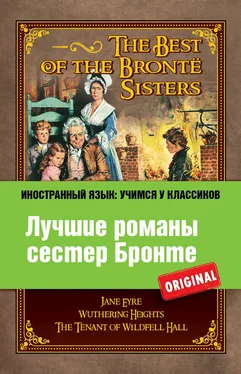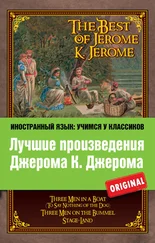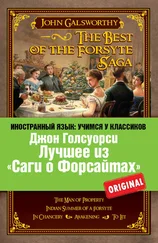My heart bled for him as I lay listening to that ceaseless tread. Hitherto I had thought too much of myself, too little of him: now I forgot my own afflictions, and thought only of his; of the ardent affection so miserably wasted, the fond faith so cruelly betrayed, the – no, I will not attempt to enumerate his wrongs – but I hated his wife and my husband more intensely than ever, and not for my sake, but for his.
They departed early in the morning, before anyone else was down, except myself, and just as I was leaving my room Lord Lowborough was descending to take his place in the carriage, where his lady was already ensconced; and Arthur (or Mr. Huntingdon, as I prefer calling him, for the other is my child’s name) had the gratuitous insolence to come out in his dressing-gown to bid his ‘friend’ good-by.
‘What, going already, Lowborough!’ said he. ‘Well, good-morning.’ He smilingly offered his hand.
I think the other would have knocked him down, had he not instinctively started back before that bony fist quivering with rage and clenched till the knuckles gleamed white and glistening through the skin. Looking upon him with a countenance livid with furious hate, Lord Lowborough muttered between his closed teeth a deadly execration he would not have uttered had he been calm enough to choose his words, and departed.
‘I call that an unchristian spirit now,’ said the villain. ‘But I’d never give up an old friend for the sake of a wife. You may have mine if you like, and I call that handsome; I can do no more than offer restitution, can I?’
But Lowborough had gained the bottom of the stairs, and was now crossing the hall; and Mr. Huntingdon, leaning over the banisters, called out, ‘Give my love to Annabella! and I wish you both a happy journey,’ and withdrew, laughing, to his chamber.
He subsequently expressed himself rather glad she was gone. ‘She was so deuced imperious and exacting,’ said he. ‘Now I shall be my own man again, and feel rather more at my ease.’
My greatest source of uneasiness, in this time of trial, was my son, whom his father and his father’s friends delighted to encourage in all the embryo vices a little child can show, and to instruct in all the evil habits he could acquire – in a word, to ‘make a man of him’ was one of their staple amusements; and I need say no more to justify my alarm on his account, and my determination to deliver him at any hazard from the hands of such instructors. I first attempted to keep him always with me, or in the nursery, and gave Rachel particular injunctions never to let him come down to dessert as long as these ‘gentlemen’ stayed; but it was no use: these orders were immediately countermanded and overruled by his father; he was not going to have the little fellow moped to death between an old nurse and a cursed fool of a mother. So the little fellow came down every evening in spite of his cross mamma, and learned to tipple wine like papa, to swear like Mr. Hattersley, and to have his own way like a man, and sent mamma to the devil when she tried to prevent him. To see such things done with the roguish naïveté of that pretty little child, and hear such things spoken by that small infantile voice, was as peculiarly piquant and irresistibly droll to them as it was inexpressibly distressing and painful to me; and when he had set the table in a roar he would look round delightedly upon them all, and add his shrill laugh to theirs. But if that beaming blue eye rested on me, its light would vanish for a moment, and he would say, in some concern, ‘Mamma, why don’t you laugh? Make her laugh, papa – she never will.’
Hence was I obliged to stay among these human brutes, watching an opportunity to get my child away from them instead of leaving them immediately after the removal of the cloth, as I should always otherwise have done. He was never willing to go, and I frequently had to carry him away by force, for which he thought me very cruel and unjust; and sometimes his father would insist upon my letting him remain; and then I would leave him to his kind friends, and retire to indulge my bitterness and despair alone, or to rack my brains for a remedy to this great evil.
But here again I must do Mr. Hargrave the justice to acknowledge that I never saw him laugh at the child’s misdemeanours, nor heard him utter a word of encouragement to his aspirations after manly accomplishments. But when anything very extraordinary was said or done by the infant profligate, I noticed, at times, a peculiar expression in his face that I could neither interpret nor define: a slight twitching about the muscles of the mouth; a sudden flash in the eye, as he darted a sudden glance at the child and then at me: and then I could fancy there arose a gleam of hard, keen, sombre satisfaction in his countenance at the look of impotent wrath and anguish he was too certain to behold in mine. But on one occasion, when Arthur had been behaving particularly ill, and Mr. Huntingdon and his guests had been particularly provoking and insulting to me in their encouragement of him, and I particularly anxious to get him out of the room, and on the very point of demeaning myself by a burst of uncontrollable passion – Mr. Hargrave suddenly rose from his seat with an aspect of stern determination, lifted the child from his father’s knee, where he was sitting half-tipsy, cocking his head and laughing at me, and execrating me with words he little knew the meaning of, handed him out of the room, and, setting him down in the hall, held the door open for me, gravely bowed as I withdrew, and closed it after me. I heard high words exchanged between him and his already half-inebriated host as I departed, leading away my bewildered and disconcerted boy.
But this should not continue: my child must not be abandoned to this corruption: better far that he should live in poverty and obscurity, with a fugitive mother, than in luxury and affluence with such a father. These guests might not be with us long, but they would return again: and he, the most injurious of the whole, his child’s worst enemy, would still remain. I could endure it for myself, but for my son it must be borne no longer: the world’s opinion and the feelings of my friends must be alike unheeded here, at least – alike unable to deter me from my duty. But where should I find an asylum, and how obtain subsistence for us both? Oh, I would take my precious charge at early dawn, take the coach to M – , flee to the port of – , cross the Atlantic, and seek a quiet, humble home in New England, where I would support myself and him by the labour of my hands. The palette and the easel, my darling playmates once, must be my sober toil-fellows now. But was I sufficiently skilful as an artist to obtain my livelihood in a strange land, without friends and without recommendation? No; I must wait a little; I must labour hard to improve my talent, and to produce something worth while as a specimen of my powers, something to speak favourably for me, whether as an actual painter or a teacher. Brilliant success, of course, I did not look for, but some degree of security from positive failure was indispensable: I must not take my son to starve. And then I must have money for the journey, the passage, and some little to support us in our retreat in case I should be unsuccessful at first: and not too little either: for who could tell how long I might have to struggle with the indifference or neglect of others, or my own inexperience or inability to suit their tastes?
What should I do then? Apply to my brother and explain my circumstances and my resolves to him? No, no: even if I told him all my grievances, which I should be very reluctant to do, he would be certain to disapprove of the step: it would seem like madness to him, as it would to my uncle and aunt, or to Milicent. No; I must have patience and gather a hoard of my own. Rachel should be my only confidante – I thought I could persuade her into the scheme; and she should help me, first, to find out a picture-dealer in some distant town; then, through her means, I would privately sell what pictures I had on hand that would do for such a purpose, and some of those I should thereafter paint. Besides this, I would contrive to dispose of my jewels, not the family jewels, but the few I brought with me from home, and those my uncle gave me on my marriage. A few months’ arduous toil might well be borne by me with such an end in view; and in the interim my son could not be much more injured than he was already.
Читать дальше
Конец ознакомительного отрывка
Купить книгу












